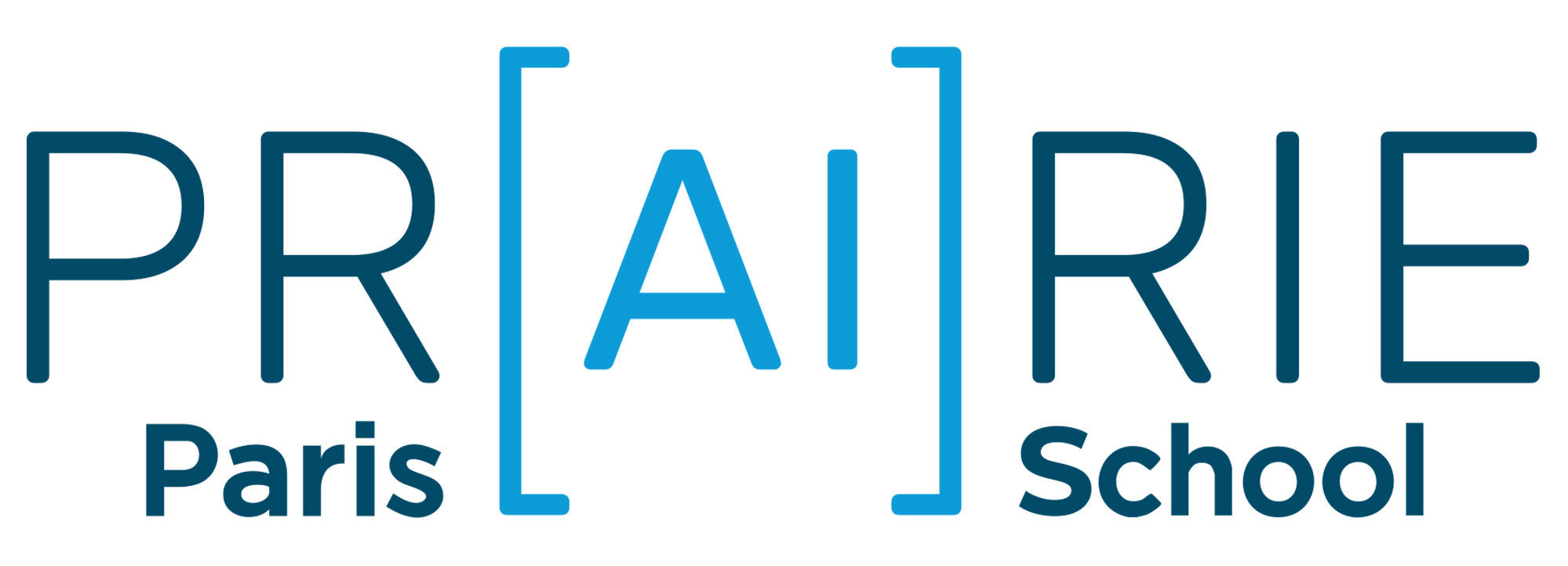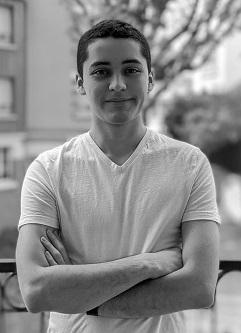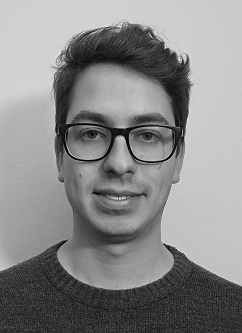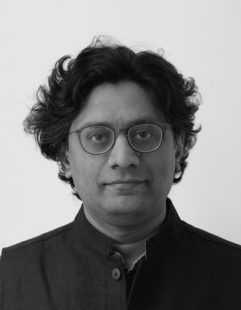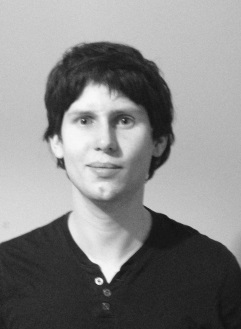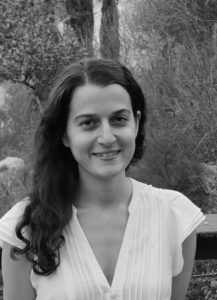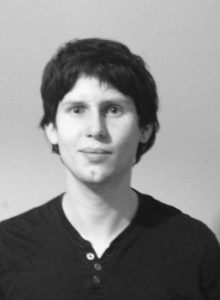David ROBIN
david.a.r.robin [at] gmail.com
Short bio
Diplôme de l’ENS (Informatique) – Master MVA, École Normale Supérieure de Paris
Thesis title
Efficient parameterization of neural networks for structured data.
Short abstract
My research focuses on guaranteeing that machine learning systems learn to exploit structures present in the data, such as known and approximately known symmetries. Most successful architectures, by design very generic to deal with diverse data inputs (visual, acoustic, textual), fail to do so and thus incur a large computational overhead which could be lightened by exploiting the underlying symmetry. Doing so systematically would yield less resource-hungry architectures with predictive power comparable to the more generic methods.
BRUNELLI Filippo
filippo.brunelli [at] inria.fr
Short bio
- Bachelor degree in Mathematics – University of Trento
- Master degree in Mathematics – University of Pisa
Thesis title
Graph algorithms for temporal graphs and transport networks.
Short abstract
Temporal graphs arose with the need to better model contexts where the appearance of interactions or connections depends on time, such as epidemic propagation or transport networks. While classical notions such connectivity and shortest paths have been extensively studied in static graphs there is still room for improvement in the temporal case.
Networked data management
The Networked Data Management group comprises a dedicated team of researchers specializing in various fields, including software verification, representation learning, distributed algorithms, and large-scale data management. They recognize the increasing prevalence of data with underlying graph or manifold structures, such as social networks, sensor networks, and knowledge graphs. To accommodate these relational and non-Euclidean structures, they develop new optimization methods and neural network architectures and address critical challenges related to security, privacy, and efficiency.
The group’s research spans multiple domains, including privacy-preserving machine learning algorithms, explainable representation learning, distributed algorithms for learning from data across machines, and large-scale data management for structured and semi-structured data. The treatment of relational or graphical data is becoming more crucial as it becomes ubiquitous in various domains such as social networks, biological networks, transportation networks, and energy grids. The group emphasizes the need for novel methods to construct and process suitable representations of data points in these networked contexts. Efficiently utilizing communication, storage, and computing resources across multiple machines is another key aspect of the group’s research. They tackle the challenge of learning from distributed data across multiple network locations, addressing scenarios where data is too large to fit on a single machine or constrained by privacy concerns within administrative boundaries. This necessitates the development of distributed algorithms and potentially new network architectures. Uncertain data is another significant aspect of their research. They recognize that input data in artificial intelligence systems often contain imprecision, incompleteness, or contradictions, while automatic tools used on such data produce imperfect annotations or predictions. Managing uncertainty and tracking the confidence and provenance in individual data items throughout complex processes is a major challenge. The group strives to design new programming language abstractions, verification tools, and cryptographic protocols that can provide formal verification and built-in security and privacy guarantees for AI applications.
The Networked Data Management group brings together a diverse set of researchers to tackle the challenges of security, privacy, scalability, and explainability in machine learning. Their work spans various scientific fields, with the ultimate goal of advancing the understanding and utilization of networked data in a wide range of domains.
BLANKE Matthieu
matthieu.blanke {at} inria.fr
Short bio
Master M2 Mathématiques, Vision, Apprentissage of ENS Paris-Saclay in 2021 and ingénieur de l’École polytechnique.
Thesis topic
Deep implicit layers with applications to physical systems and reinforcement learning.
Short abstract
My research focuses on the use of machine learning tools to understand and control physical systems. I am interested in developing efficient methods to learn physical systems, with the concern of incorporating and taking advantage of available prior information.
PADMANABHA Anantha
anantha.5491 [at] gmail.com
Short bio
PhD, Insitute of Mathematical Sciences, Chennai, India
Research project
Query evaluation over inconsistent databases.
Short abstract
We look at the dichotomy conjecture of evaluating boolean conjunctive queries over inconsistent databases with self joins.
BAKER Antoine
L’Ecole normale supérieure - PSL
antoine.baker59 [at] gmail.com
Short bio
PhD Ecole Normale Supérieure de Lyon (2011)
Research project
Compositional inference.
Short abstract
Approximate message passing algorithms, first applied to compressed sensing, are a promising approach to solve high-dimensional inference problems: their performance can be theoretically predicted and they often reach the optimal reconstruction error. We develop a modular package to ease the implementation of such algorithms: the user only has to declare the model then the inference, entropy estimation and prediction of performance are fully automated.

dav
SENELLART Pierre
pierre.senellart [at] ens.fr
Short bio
Professor and deputy director, Department of Computer Sicence, École normale supérieure. Head of the Valda Inria team. Adjunct professor, Télécom Paris. Research fellow at the Centre on regulation in Europe.
Topics of interest
Data management, uncertainty, provenance, large-scale networks
Project in Prairie
Pierre Senellart’s research deals with management and mining of large-scale structured and semi-structured data in general, and largescale networks in particular, addressing issues such as management of the provenance, privacy, and uncertainty of data, and scalability through leveraging the structure of data. He is a co-coordinator of the PSL graduate program on data science and AI, in particular teaching within the PSL IASD Master.
Quote
Uncertain data are pervasive in artificial intelligence systems: input data are often imprecise, incomplete, or even contradictory, while automatic tools run on these data often produce imperfect annotations or predictions. A major challenge is to properly manage this uncertainty in data, keeping track of the confidence in individual data items throughout complex processes. For explicability and traceability purposes, it is also important to keep track of the provenance of data: where it comes from, how it was produced, etc. Uncertainty and provenance management are two of the main research issues in modern data management.
Team
CARMELI Nofar
Pstdoctoral researcher
PADMANABHA Anantha
Postdoctoral researcher
MASSOULIÉ Laurent
Networks and Machine Learning
laurent.massoulie [at] inria.fr
Short bio
Research Director at Inria, Director of the Microsoft Research-Inria Joint Centre, and Professor at the Applied Mathematics Centre of Ecole Polytechnique. Co-author of the Best Paper Award-winning papers of IEEE INFOCOM 1999, ACM SIGMETRICS 2005, ACM CoNEXT 2007, NeurIPS 2018. Elected a Technicolor Fellow in 2011. Recipient of the “Grand Prix Scientifique” from the Del Duca Foundation delivered by the French Academy of Sciences in 2017.
Topics of interest
Unsupervised learning, distributed machine learning, modeling and algorithmic design for distributed systems and networks
Project in Prairie
Laurent Massoulié will develop distributed algorithms for learning from data spread over several machines, to efficiently exploit communication resources between data locations, and storage and compute resources at data locations. He will develop efficient algorithms for unsupervised learning from ‘graphical data’. He will also address fairness and privacy challenges of machine learning, in particular in the contexts of recommender systems and matching markets.
Quote
Relational, or ‘graphical’ data is becoming ubiquitous (e.g. social / biological / transportation networks, energy grids…). Its treatment calls for new methods to construct and process adequate representations of data points in suitable spaces. There are many important scenarios where data must be distributed on several network locations, e.g. when it is too large to fit on a single machine, or when it can’t leave administrative boundaries due to privacy concerns. New distributed algorithms, and possibly new network architectures are needed for efficient learning from data distributed over a network.
Team
BRUNELLI Filippo
PhD student
Bachelor degree in Mathematics – University of Trento
Master degree in Mathematics – University of Pisa
LELARGE Marc
marc.lelarge [at] inria.fr
Short bio
Dr. Marc Lelarge is a researcher at INRIA. He is also a lecturer in deep learning at Ecole Polytechnique (Palaiseau, France) and Ecole Normale Superieure. He graduated from Ecole Polytechnique, qualified as an engineer at Ecole Nationale Superieure des Telecommunications (Paris) and received a PhD in Applied Mathematics from Ecole Polytechnique in 2005. Dr. Marc Lelarge received the NetGCoop 2011 Best Paper Award with his PhD student E. Coupechoux, was awarded the 2012 SIGMETRICS rising star researcher award and the 2015 Best Publication in Applied Probability Award with Mohsen Bayati and Andrea Montanari for their work on compressed sensing.
Topics of interest
Machine learning, deep learning, graphs and data analytics
Project in Prairie
Marc Lelarge’s research focuses on representation learning with an emphasis on explainability. Marc Lelarge develops algorithms for learning and mining from relational and graphical data and pursue collaborations in medical informatics (active learning and NLP for electronic health records). Marc Lelarge is teaching courses on deep learning at École Normale Supérieure and École Polytechnique.
Quote
Many scientific fields study data with an underlying graph or manifold structure such as social networks, sensor networks, biomedical knowledge graphs. The need for new optimization methods and neural network architectures that can accommodate these relational and non-Euclidean structures is becoming increasingly clear. Indeed, the statistical properties of data defined on high-dimensional graphs are very different form the stationarity, locality and compositionality assumptions at the core of the success of deep learning models in vision or NLP. For such type of data, I am working on a recent deep learning approach: graph neural networks able to learn a message passing algorithm and aggregation procedure to compute an embedding of the graph and its nodes.
Team
BLANKE Matthieu
PhD student
Master M2 Mathématiques, Vision, Apprentissage of ENS Paris-Saclay in 2021 and ingénieur de l’École polytechnique.
David ROBIN
PhD student
Diplôme de l’ENS (Informatique) – Master MVA, École Normale Supérieure de Paris
BAKER Antoine
Postdoctoral researcher
PhD Ecole Normale Supérieure de Lyon (2011)
BHARGAVAN Karthikeyan
karthikeyan.bhargavan [at] inria.fr
Short bio
Research director, Inria Paris (2015-). Researcher, Inria Paris (2009-2015). Researcher, Microsoft Research UK (2004-2009). Recipient of ERC Consolidator Grant (2016) and ERC Starting Grant (2010). Awarded EC Horizon Impact Award (2019), Prix Jeune Chercheur Inria–Académie des sciences (2016), Microsoft Research Outstanding Collaborator Award (2016), Levchin Prize for Real World Cryptography (2016).
Topics of interest
Programming Languages, Software Verification, Applied Cryptography, Security Protocol Design and Analysis
Project in Prairie
Karthikeyan Bhargavan’s research lies at the intersection of programming languages, software verification, and applied cryptography. He will work on developing efficient cryptographic protocols and high-assurance software for privacy-preserving machine learning algorithms. In collaboration with AI researchers, he seeks to design new programming language abstractions and verification tools that can enable developers to build formally verified AI applications that provide built-in security and privacy guarantees. He will also teach courses on cryptographic protocols and high-assurance software development at MPRI and PSL.
Quote
Machine learning systems are notoriously hungry for data, and often this
data is personal and private. How do we then build impactful AI applications that can be used in sensitive areas like medicine and transportation without violating the privacy of our users? The answer lies in building in security and privacy enhancing mechanisms as essential components of AI systems and formally proving that these mechanisms meet strong security requirements. In my team, we design programming languages and verification tools that can help build high-assurance security-oriented software. Our next research challenge is to create provably secure software that also learns, but preserves user privacy.
Team
WALLEZ Théophile
PhD student
